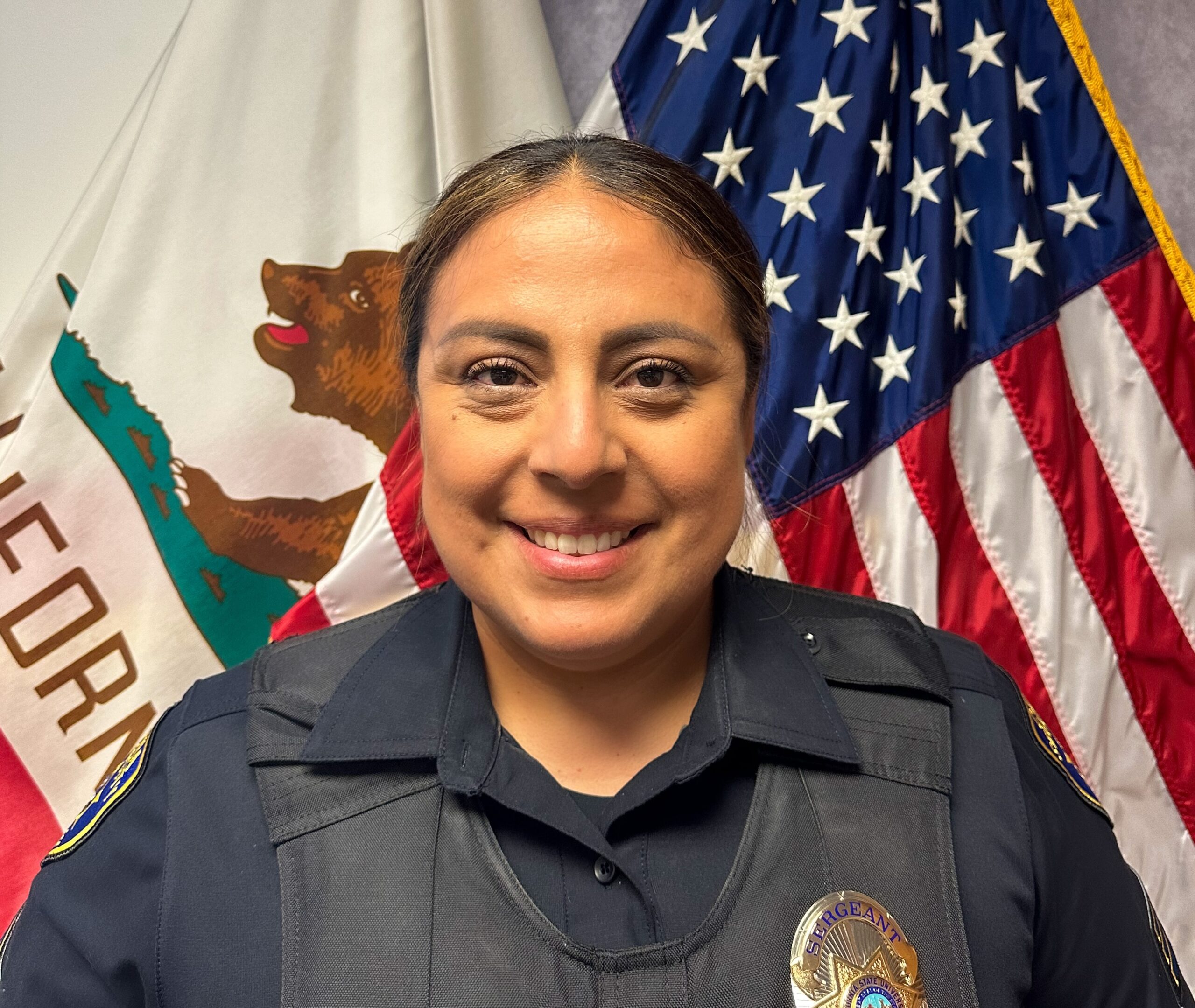Sergeant Marissa Vancil
California State University, Long Beach
Long Beach

Why did you become a police officer?
I found this job by accident, and it’s been the best accident ever! I don’t have family or friends in law enforcement. I thought I was going to pursue a career in the medical field. During college, I started working part-time at a police department as a police cadet. A few months later, I was encouraged to apply for a Reserve Police Officer position. I went through the part-time (extended) academy, not fully understanding what I was doing. I graduated from the academy and completed my required monthly hours. Afterward, I applied for a police dispatcher position because I really had no intention of becoming a full-time police officer. About three years later, the light bulb turned on, and I realized that I LOVED my patrol time as a Reserve Police Officer. I applied for a full-time Police Officer position, and the rest is history.
What motivates you to succeed?
The idea that I might positively influence someone’s life, the idea that I may positively change someone’s opinion about police officers—the hope that I can inspire and leave a positive thumbprint in this world—motivates me every day at work. That thumbprint can be a community member or even a fellow co-worker.
What’s your most memorable moment on the job?
In 2022, I had my first child and was not sure how I would balance being a good wife, a good mom, and a good employee. It’s been an adjustment, but with some patience, a supportive family and department, I was able to find that balance. A few months ago, I was promoted to Sergeant! Promoting to Sergeant has been one of the proudest moments of my career, and I am looking forward to sharing my promotion with my family at my promotion ceremony.
What challenges have you faced?
One of my biggest challenges early in my career was being overlooked or not taken seriously by the community. When arriving at calls, citizens would walk right by me and talk to my male co-workers instead. However, with some time, experience, and a higher level of confidence, I overcame self-doubt and hesitation, and my command presence alone made all the difference. Now, as a Sergeant, I am confident not only in leading a call or case but also in leading a crew of officers.
What advice do you have for women considering a profession in policing?
Do it! Do it because you want to make a difference and have a true passion for law enforcement. Not every day will be perfect, and some days will truly test your patience, but I can honestly say that, for the most part, it feels like I’ve never worked a day in my life. The presence of a female officer and having a female perspective can make a difference at a call. You are capable of this job! Do it!
How we’re changing policing
The 30×30 Initiative is a coalition of police leaders, researchers, and professional organizations committed to advancing and supporting the representation, experiences, and well-being of women at all levels of law enforcement, both in the U.S. and beyond.
Research shows that women play a crucial role in building community trust, de-escalating conflict, and improving public safety outcomes, with evidence linked to reduced use of force and enhanced relationships with the communities they serve. However, women represent less than 14% of sworn officers and 20% of recruits in state and local law enforcement agencies. Additionally, about 40% of the approximately 18,000 law enforcement agencies in the U.S. have no full-time women officers (Source: Bureau of Justice Statistics).
We are collaborating with hundreds of agencies to make law enforcement a profession where qualified women who are drawn to it feel welcomed and supported while ensuring agencies address their unique needs and foster their success.